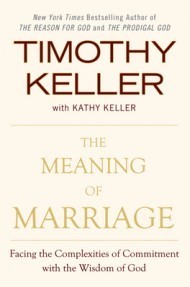Justin Taylor's Blog, page 291
September 7, 2011
Should We Be Upset Evangelicals Weren't Invited to Pray at the 9/11 Interfaith Memorial?
Frank Page, president of the Southern Baptist Convention Executive Committee, believes the lack of invitation to the 9/11 memorial service at the National Cathedral represents an example of "tragic intolerance toward Protestants and particularly toward evangelicals."
Carl Trueman responds:
I think the Rev. Page has misunderstood the reason for the exclusion: it seems the powers that be in Washington understand the implications of the biblical evangel better than some evangelical leaders. Rather than lamenting the situation, the Southern Baptists should be delighted that the organizers had the sensitivity and foresight not to place them in the grim position of having to turn down such an invitation in order to avoid compromising their orthodox, Protestant identity. The public relations disaster that would have followed this elementary stand for biblical truth and exclusivity would have been spectacular. After all, how could one maintain that one is taking seriously 1 Timothy 2 while sharing prayer time with a real-life incarnate lama?
The Southern Baptists need to stop feeling disappointed that such a well-intentioned but theologically incoherent gathering does not want their presence and they should instead remember the wisdom of Marx—not Karl, but Groucho: you should never want to join any club that would have you as a member.
9/11: Ten Years Later
 Ligonier's September Tabletalk is available for free download, including articles by:
Ligonier's September Tabletalk is available for free download, including articles by:
R.C. Sproul
John MacArthur
Thabiti Anyabwile
Charles Drew
Trevin Wax asks, "How does living in a post-9/11 world influence the way you preach and do ministry?" with answers from:
Matt Chandler
Kevin DeYoung
Thabiti Anyabwile
J.D. Greear
Afshin Ziafat
"Listen!" (The Cymbal Crashing Clouds)
Andrew Peterson on Ben Shive's new album The Cymbal Crashing Clouds:
These songs are quirky, brilliant, poetic, and joyful—and the lyrics are smack-your-forehead good. I'm being serious when I say that I don't know of any songwriter on earth who could make an album like this—one with pop hooks, chamber strings, great sounds, intricate poetry, and on top of that, Scriptural allusions galore. As the proprietor of this establishment, I implore you to download this record (or pre-order the disc) and listen to it eighteen times in a row, as I did when I first heard it. Then sit back and thank God that there are true believers in the world who are using their gifts for the glory of the Giver.
When I introduce Ben at concerts I usually say that he's a great poet and that he knows the Bible better than most people I know. Well, as you're about to see, he's also a great writer.
You can listen to a song—and an explanation about the writing behind it—here.
Where the Christian Rock Stars Go to Die
Few combine observational journalism with theological insight as well as Ted Kluck.
September 6, 2011
What Is the Mission of the Church?
Kevin DeYoung and Greg Gilbert's new book—What Is the Mission of the Church?: Making Sense of Social Justice, Shalom, and the Great Commission—is far and away the best material I have seen on these crucial issues. You can read the the table of contents and the first chapter, "A Common Word in Need of a Careful Definition," online for free.
Two things to note:
(1) WTS Books is running a significant sale on the book—63% to 69% off—for 72 hours (see below); and
(2) Kevin and Greg will be on Desiring God Live tonight from 7:00-8:30 PM, Eastern.
"In what appears to be a growing tension over what the mission of the church encompasses, DeYoung and Gilbert bring a remarkably balanced book that can correct, restore, and help regardless of which way you lean or land on all things 'missional.' I found the chapters on social justice and our motivation in good works to be especially helpful. Whether you are actively engaging the people around you with the gospel and serving the least of these or you are hesitant of anything 'missional,' this book will help you rest in God's plan to reconcile all things to himself in Christ."
— Matt Chandler, Lead Pastor, The Village Church, Highland Village, Texas
"Among the many books that have recently appeared on mission, this is the best one if you are looking for sensible definitions, clear thinking, readable writing, and the ability to handle the Bible in more than proof-texting ways. I pray that God will use it to bring many to a renewed grasp of what the gospel is and how that gospel relates, on the one hand, to biblical theology and, on the other, to what we are called to do."
— D. A. Carson, Research Professor of New Testament, Trinity Evangelical Divinity School
"DeYoung and Gilbert have put us in their debt with their clear, biblical, theological, and pastoral exposition of the mission of God's people. That mission, which they rightly understand within the story line of the whole Bible, is summarized in the Great Commission and involves gospel proclamation and disciple making. This superb book will encourage its readers 'to go into the world and make disciples by declaring the gospel of Jesus Christ in the power of the Spirit and gathering these disciples into churches, that they might worship and obey Jesus's commands now and in eternity, to the glory of God the Father.'"
— Peter T. O'Brien, Senior Research Fellow in New Testament, Moore Theological College, Australia
"A very timely and eminently engaging book for all those who care deeply about the church's mission in our day. Again and again, I found myself nodding in agreement as the authors made a key point from Scripture or noted the missional relevance of a given biblical passage. I highly recommend this book, not just as food for thought, but more importantly, as a call to obedient, biblically informed action."
— Andreas J. Köstenberger, Professor of New Testament and Director of PhD Studies, Southeastern Baptist Theological Seminary
"Christ is the greatest message in the world, and delivering it is the greatest mission. But are we losing our focus? Are we being distracted, sometimes even by good things? Zealous Christians disagree sharply today over the church's proper ministry and mission. Kevin DeYoung and Greg Gilbert bring us back to first things in an age of mission creep and distraction. Offering balanced wisdom, this book will give us not only encouragement but discomfort exactly where we all need it. It's the kind of biblical sanity we need at this moment."
— Michael S. Horton, J. Gresham Machen Professor of Systematic Theology and Apologetics, Westminster Seminary California
"Kevin DeYoung and Greg Gilbert have written an important book on an important topic. Fair, keenly observant, startlingly honest, this book is replete with careful exegetical work. Verses are not merely cited; they are considered in context. The length of an idea is considered, all the way from its expression in the local church back to its source in Scripture. The result is a book that is nuanced and clear, useful and enjoyable to read, and that is no small gift from two young pastor-theologians who have already become reliable voices. Open this book and you'll want to open your Bible and open your mind on everything from justice to capitalism, from mercy to love."
— Mark Dever, Pastor, Capitol Hill Baptist Church, Washington DC; President, 9Marks
"DeYoung and Gilbert clear the fog that has settled over the nature of the church's mission. Their tone is gracious, the style is accessible, but most importantly this book is marked by fidelity to biblical revelation and the gospel of Jesus Christ. The authors have succeeded in what they exhort us to do: they have kept the main thing as the main thing."
— Thomas R. Schreiner, James Buchanan Harrison Professor of New Testament Interpretation, The Southern Baptist Theological Seminary
"DeYoung and Gilbert provide clarity to some of the most complex contemporary issues facing the church. Focusing us squarely on the redemptive nature of the gospel, they ultimately point us not only to the church's mission, but to practical ways to understand and live it. The result is a book that will be of great help to pastors, missiologists, theologians, and practitioners."
— M. David Sills, Faye Stone Professor of Christian Missions and Cultural Anthropology, Director of the Doctor of Missiology Program and Great Commission Ministries, The Southern Baptist Theological Seminary
"Every generation is tempted to augment or diminish, even nuance or redefine the mission of the church. Kevin DeYoung and Greg Gilbert have provided a biblical corrective and protection for our generation in What Is the Mission of the Church? With a gracious and kind spirit, this book reclaims the ecclesiastical concepts of mission, purpose, social justice, and the Great Commission from those who have redefined these words with a dictionary other than Scripture. Pastors should read this book with their elders, deacons, and leadership teams to wrestle with answers to the most pressing questions about the church in our day."
— Rick Holland, Senior Pastor, Mission Road Bible Church, Prairie Village, Kansas
What Is Evangelicalism?
 Zondervan has a new book coming out this month: Four Views On The Spectrum of Evangelicalism, edited by Andrew David Naselli and Collin Hansen.
Zondervan has a new book coming out this month: Four Views On The Spectrum of Evangelicalism, edited by Andrew David Naselli and Collin Hansen.
The four contributors are Kevin Bauder (Fundamentalism), Albert Mohler (Confessional Evangelicalism), John Stackhouse (Generic Evangelicalism), and Roger Olson (Postconservative Evangelicalism).
You can read online Collin Hansen's introduction and several pages from Kevin Bauder's essay advocating the fundamentalist perspective.
Albert Mohler recently posted an excerpt from the opening pages of his chapter.
He explains why this issue is important:
The challenge of defining evangelical identity remains one of the most important challenges for the movement—and one that entails no small amount of controversy. This much is clear—there is no way for any responsible evangelical to avoid this challenge. To do so is to consign the word to eventual meaninglessness, and to deny evangelicals the right and responsibility to define themselves in theological terms. That is far too high a price to pay.
And he explains his own approach to defining evangelicalism:
In my view, evangelical definition must be placed within three distinct but overlapping contexts. We should consider evangelicalism in historical, phenomenological, and normative senses. None of these can stand alone, and I will argue that all three are needed in order to understand evangelicalism and to consider the question of evangelical identity.
An important discussion worth having.
What Does "A Boy Named Sue" Have to Do with Biblical Manhood and Fatherhood?
Russell Moore . "If you can understand what's going on when Johnny Cash sings this song from the point of view of a young boy who has been abandoned by his dad, who is given a name that emasculates him, then you can understand what is really going on in a lot of the conversations that we're having in our culture, and a lot of the conversations we're having in our churches, when it comes to masculinity." Moore goes on to argue that we need to define masculinity in terms of Jesus Christ, and not the other way around.
You can listen to the whole podcast .
C.S. Lewis's Writing Style and Advice
 Kevin DeYoung has a good post today on what made C.S. Lewis's writing style so effective and memorable. I thought it might be helpful to repost a couple of comments containing Lewis's counsel on writing well.
Kevin DeYoung has a good post today on what made C.S. Lewis's writing style so effective and memorable. I thought it might be helpful to repost a couple of comments containing Lewis's counsel on writing well.
C.S. Lewis's last interview was on May 7, 1963—six months before he died. One of Sherwood Wirt's questions was on writing: "How would you suggest a young Christian writer go about developing a style?"
Lewis responded:
The way for a person to develop a style is (a) to know exactly what he wants to say, and (b) to be sure he is saying exactly that.
The reader, we must remember, does not start by knowing what we mean. If our words are ambiguous, our meaning will escape him.
I sometimes think that writing is like driving sheep down a road. If there is any gate open to the left or the right the reader will most certainly go into it.
("Cross-Examination," in C.S. Lewis: Essay Collection and Other Short Pieces, ed. Lesley Walmsley, p. 555.)
Seven years earlier (June 26, 1956), Lewis responded to letter from an American girl named Joan with advice on writing:
Always try to use the language so as to make quite clear what you mean and make sure your sentence couldn't mean anything else.
Always prefer the plain direct word to the long, vague one. Don't implement promises, but keep them.
Never use abstract nouns when concrete ones will do. If you mean "More people died" don't say "Mortality rose."
In writing. Don't use adjectives which merely tell us how you want us to feel about the things you are describing. I mean, instead of telling us the thing is "terrible," describe it so that we'll be terrified. Don't say it was "delightful"; make us say "delightful" when we've read the description. You see, all those words (horrifying, wonderful, hideous, exquisite) are only like saying to your readers "Please, will you do my job for me."
Don't use words too big for the subject. Don't say "infinitely" when you mean "very"; otherwise you'll have no word left when you want to talk about something really infinite.
(C.S. Lewis, Letters to Children, p. 64.)
September 5, 2011
The Kellers on "The Meaning of Marriage"
 Tim Keller's next book, written with the help of his wife Kathy, is entitled The Meaning of Marriage: Facing the Complexities of Commitment with the Wisdom of God.
Tim Keller's next book, written with the help of his wife Kathy, is entitled The Meaning of Marriage: Facing the Complexities of Commitment with the Wisdom of God.
Here is the table of contents:
The Secret of Marriage
The Power for Marriage
The Essence of Marriage
The Mission of Marriage
Loving the Stranger
Embracing the Other (written by Kathy)
Singleness and Marriage
Sex and Marriage
It concludes with an Epilogue, and an Appendix: "Decision Making and Gender Roles."
Andy Naselli writes:
If this book is as helpful as "Cultivating a Healthy Marriage," a seminar that Tim and Kathy Keller gave in 2005, then it will be outstanding:
Part 1 (free)
Part 2 ($2.50). This 54-minute Q&A is worth paying for.Their talk "Cultivating a Healthy Marriage" describes marriage with the metaphor of a garden:
Planning and Planting (gospel reenactment, headship-submission)
Fertilizing and Watering (communication, love languages)
Weeding and Pruning (conflict resolution)
Harvesting and Enjoying
Spurgeon on a Stupid Way to Read the Scriptures
From Charles Spurgeon's 1867 sermon "A Song at the Well-head":
You are retired for your private devotions; you have opened the Bible, and you begin to read.
Now, do not be satisfied with merely reading through a chapter. Some people thoughtlessly read through two or three chapters—stupid people for doing such a thing!
It is always better to read a little and digest it, than it is to read much and then think you have done a good thing by merely reading the letter of the word.
For you might as well read the alphabet backwards and forwards, as read a chapter of Scripture, unless you meditate upon it, and seek to comprehend its meaning.
Merely to read words is nothing: the letter kills.
The business of the believer with his Bible open is to pray, "Lord, give me the meaning and spirit of your word, while it lies open before me; apply your word with power to my soul, threatening or promise, doctrine or precept, whatever it may be; lead me into the soul and marrow of your word."
Also, it is not the form of prayer, but the spirit of prayer that shall truly benefit your souls.
That prayer has not benefited you, which is not the prayer of the soul.
You have need to say, "Lord, give me the spirit of prayer; now help me to feel my need deeply, to perceive your promises clearly, and to exercise faith upon them."
In your private devotions, strive after vital godliness, real soul-work, the life-giving operation of the Spirit of God in your hearts.
Justin Taylor's Blog
- Justin Taylor's profile
- 44 followers




